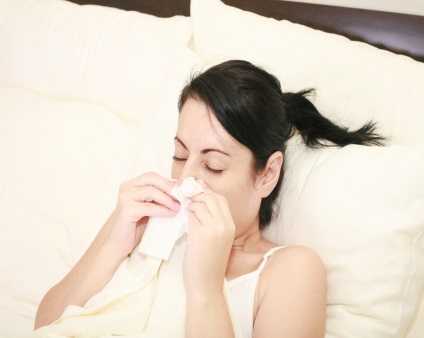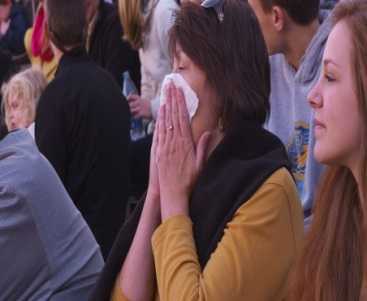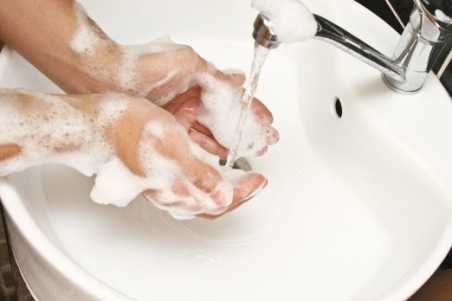Event Attendees: Flu Prevention at Mass Gatherings
Flu Prevention at Mass Gatherings
Flu can spread easily at events and mass gatherings, such as concerts, festivals, conferences, worship services, and sporting events. People traveling to and from mass gatherings can also spread flu to other communities and to family members when they get home.
Getting a flu vaccine every year is the best way to avoid getting seasonal flu. Besides the flu vaccine, there are other important actions you and your community can take to protect yourself and others from getting and spreading the flu. These are called nonpharmaceutical interventions or NPIs. Examples of NPIs include staying home when you are sick and covering your coughs and sneezes. NPIs are especially important during pandemic flu outbreaks, when people have little or no immunity to a new flu virus and a vaccine is not yet available.
- What you can do personally (Personal NPIs): Stay home when you are sick. Cover your coughs and sneezes. Wash your hands often.
- What communities can do (Community NPIs): Implement social distancing interventions in schools, workplaces, and at events.
- What everyone can do to keep the environment germ-free (Environmental NPIs): Clean frequently touched surfaces and objects like door knobs.
- CDC provides educational resources and training on how to incorporate personal, community, and environmental NPIs into your pandemic flu plans.
The actions you take and the plans you make today make a difference. Here are some important steps for protecting yourself and others from getting and spreading the flu at a gathering.
1. Staying home when you are sick.

What to do:
Stay home so that you avoid spreading germs to others.
How long do I stay home?
- If you get flu -like symptoms, stay home after you get sick to lower the chances of spreading your illness to others.
- Stay home for at least 24 hours after your fever is gone without the use of fever-reducing medicines, such as acetaminophen. This will help ensure that your fever is truly gone and you are past the point of being contagious.
- Children and people with weakened immune systems may need to stay home longer.
Why is this important?
Your body needs rest to recover from illness. It can take longer to feel better when you do not rest. You can spread the flu virus up to 24 hours after symptoms subside. Children and people with weakened immune systems often need even more time to recover and to stop being contagious.
2. Keeping your distance.

What to do:
- Stay at least 3 feet away from sick people.
- Do not attend a meeting or event if you are sick or are at high risk for flu complications.
* During a flu pandemic *
- Avoid places where people gather, such as meetings, concerts, festivals, and sporting events, especially if you are at high risk for flu complications.
- Seek alternative ways to participate in gatherings, such as watching them on television or online, so that you can avoid face-to-face contact.
Why is this important?
Droplets from coughs or sneezes containing flu virus can travel at least 3 feet, so keeping this distance from sick people can help lower your chance of becoming ill.
3. Covering your coughs and sneezes.

What to do:
- Cover your nose and mouth with a tissue when you cough or sneeze.
- Throw away the used tissue, and then wash your hands.
* During a flu pandemic *
If you do attend an event, you may choose to wear a facemask when you are sick to help lower the chances of spreading illness to others.
Why is this important?
Covering coughs and sneezes with a tissue helps prevent the spread of the flu virus through the air and on your hands.
4. Washing your hands.

What to do:
- Wash your hands thoroughly and often with soap and water.
- If soap and water are not available, use hand sanitizer with at least 60% alcohol.
Why is this important?
Washing your hands lowers the amount of flu virus that can spread when you shake someone’s hands or touch surfaces and objects, such as desks and doorknobs. It is especially important to wash your hands before and after touching your eyes, nose, or mouth.
5. Being prepared and informed.

What to do:
- Get a seasonal flu vaccination as soon as it is available in your area.
- Keep informed about your local flu situation.
* During a flu pandemic *
- Get a pandemic flu vaccination as soon as it is available in your area.
- Make plans for what to do if your local public health department recommends closing schools or canceling events.
- Know the refund policy for your event.
Why is this important?
Knowing what precautions to take and where to go to get credible information will help you make plans for protecting yourself and others from the flu.
- Page last reviewed: August 2, 2017
- Page last updated: August 2, 2017
- Content source:


 ShareCompartir
ShareCompartir